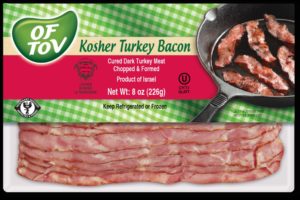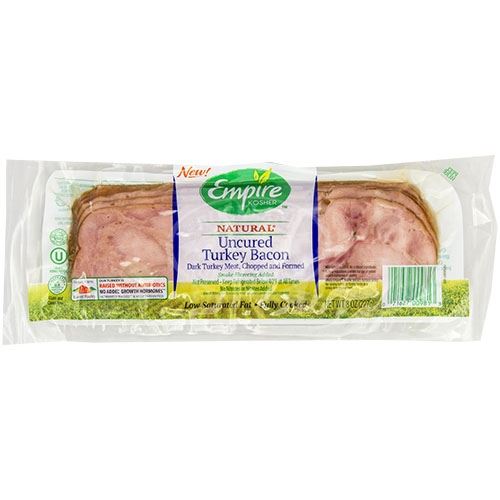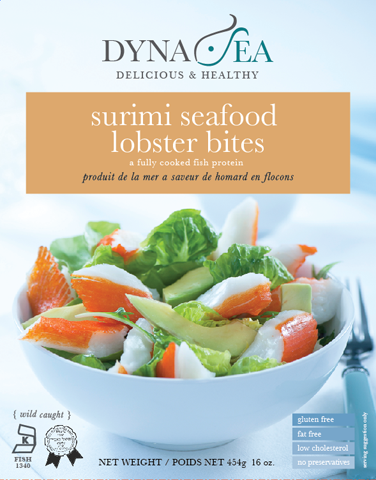Kosher Plant-Based Pork? Not So Fast
As recently reported, Impossible Foods, maker of the Impossible Burger™, announced that their newest product Impossible Pork, a plant-based ground “pork,” will not be certified kosher or halal. Although the product itself complies with kosher laws (ingredients, manufacturing), and was specifically designed to be kosher certified, the Orthodox Union, which certifies other Impossible Foods products, including beef, burgers, and sausage, declined to approve the product. According to the report in the JTA, Rabbi Menachem Genack, the CEO of the OU’s kosher division. although a plant-derived product could easily be certified kosher, “…in terms of sensitivities to the consumer … it didn’t get it.”
Beyond Meat, which makes the Beyond Burger, Beyond Meatballs, and Beyond Sausage, carries kosher certification from the OK. They too have a pork product, currently being marketed in Asia but coming to the US. No word yet on whether the OK will approve Beyond Pork when it is released.
Kosher certification sometimes is withdrawn or withheld for other than food reasons. As noted in the article, the OU withheld certification from a restaurant because it did not like the implications of the name (Jezabel, the infamously immoral biblical figure). According to reports at the time, the OU also threatened to revoke certification of a sports bar and restaurant that was planning a millennium new year’s eve party. The Glatt yacht, a popular floating restaurant, lost its certification when it allowed couples dancing.
Yet, this decision seems inconsistent with many other products on the market that have approval. Bacon flavored products (famously Bac-os) are routinely approved. Indeed products that are labeled “bacon” (beef, turkey, lamb, or plant based) are routine and common, despite the food being synonymous in most people’s minds as the ultimate non-kosher food.




Incidentally, in Israel, Crave, a purveyor of lamb bacon (which according to some is the closest to pork bacon), was threatened with the loss of kosher certification unless the product was renamed.
Even forbidden shellfish in a product name is acceptable:


New Wave Shrimp, like Impossible, a plant-based product, is now coming to market and is certified kosher. Other imitation lobster, crab, and shrimp, made from kosher fish, are certified as well.
The OU does approve Impossible Food’s Impossible Sausage, which is obviously a pork sausage replacement.


But somehow, Impossible Pork as a product name was one step too far. The word pork seems to connote something worse than sausage (or shrimp or bacon), and Impossible Foods insists that that is the name of their product. It should be noted that, like Impossible Beef, Burger, and Sausage, the label prominently states that it is “MADE FROM PLANTS” and has the well-known Impossible branding. This is, in our mind, no different from saying Turkey Bacon or Plant-Based Bacon.
Creating alternatives to prohibited foods, and making it clear what they are intended to taste like, is not a new idea, nor is it problematic. The Talmud (which in many respects is the primary text of Jewish law) has the following passage:
Yalta said to her husband Rav Naḥman: As a rule, for any food that God prohibited to us, God permitted to us something with the same taste. God prohibited us to eat blood, yet we can eat liver, which retains the taste of blood.… the Torah prohibits the consumption of suet of a domesticated animal, but permits suet of an undomesticated animal, which has the same flavor. Pork is prohibited, but one may eat the brain of a shibuta fish (possibly the shabout, a type a carp), which has a similar taste. One may not eat giruta (a non-kosher fish though its present identity is not known), but one may eat the tongue of another fish, which tastes similar. (Chillin 109b).
Furthermore, desiring to eat non-kosher foods for the taste is similarly not a problem either. In the midrashic commentary to the Book of Leviticus, Rabbi Eleazer ben Azariah is quoted as saying that one should not say that they have no desire to eat pork, rather they should say that they do have such a desire, but that it is a divine prohibition. (Sifra, Kedoshim, Chapter 12 23 as quoted by Rashi in his commentary to Leviticus 20:26).
It seems to us that however well intentioned, that the OU’s decision deprives kosher-observant Jews to opportunity to taste and eat a permitted food that tastes like a prohibited food (assuming of course that Impossible Pork does, in fact, taste close to the real thing). While it is understandable to be uncomfortable seeing a product labelled as pork in a kosher market, restaurant, or home fridge, nonetheless, it is really no different from the approved Italian Sausage, which is just as clearly intended to evoke a pork product. We agree with other commentators in social media that the decision to deny certification is a mistake and should be reconsidered at the earliest possible opportunity.
Editor’s note: Rabbi Genack is a friend of this blog and he, along with the professional staff at the OU, have been invaluable to us. While we disagree with their decision on Impossible Pork, we appreciate their efforts to increase the number of kosher products, particularly vegan and cell cultured foods, in the marketplace.





Decisions like this — where the product is obviously kosher — devalue kosher certification. People already assume that OU-D is an unreliable indicator that a product is actually dairy. Does the OU really want kosher consumers to assume that all vegan products are kosher whether they are certified or not? Because that’s undoubtedly what some will take away from this.
Suggestion: Might it make a difference to the O-U if the Impossible Foods company would agree to put quote marks around the word — “Pork” — thereby clearly indicating that it is only an imitation of the real thing?